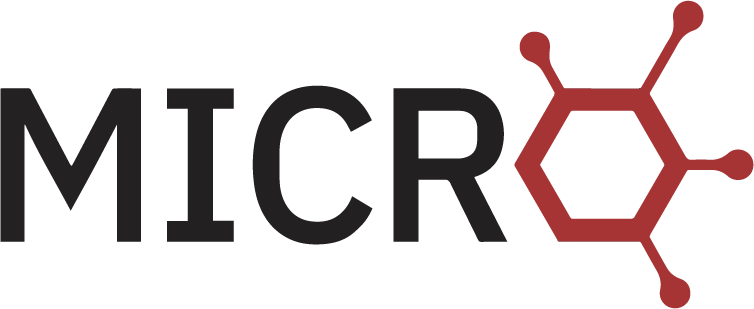Admissions Criteria
MICRO admissions are based upon the following:
Application
Transcript
Resume/CV
Letter(s) of recommendation (optional, but highly recommended)
Applying to MICRO
Welcome to the Materials Initiative for Comprehensive Research Opportunity (MICRO)! We are not currently accepting applications. Please check back in the Spring of ‘25.
MICRO (The Materials Initiative for Comprehensive Research Opportunity) is an online research and educational experience program offered through the Departments of Materials Science and Engineering at MIT and NU. The MICRO program aims to expand research opportunities for talented students who have had to overcome significant challenges in their path towards a research career. Examples include but are not limited to:
First-generation college student who will be the first person in their family to graduate from a four-year college.
Individuals facing financial hardship
Individuals who have had to overcome adversity or other disadvantages resulting from their individual circumstances and experiences
Individuals managing a disability
Individuals serving in the US military
FAQs
-
MICRO’s first semester typically starts in the third full week of September (9/18/2023, this year). The MICRO program timeline is semester-based, with a first semester weaving online lecture, research, and soft skill workshops together, and subsequent semesters focused mainly on research contribution. MICRO participants are also provided with a break period over the winter holidays and summer to rest and/or participate in other internships and summer research experiences that are instrumental in their personal and professional development.
-
Applications are only accepted over the summer for all cycles starting the following Fall semester. We do not accept applications outside this summer window.
-
The goal of the Materials Science portion of the curriculum is to give students an introduction to the important ideas underpinning the field. Taken together with their potential STEM postsecondary experience, this material gives the MICRO students the essential knowledge necessary to start making an impact in the field of MSE . We mainly draw from open educational resources, such as MIT OpenCourseWare (OCW) and lectures made publicly available on YouTube by MIT’s Department of Materials Science and Engineering. Topics include the following:
• An Introduction to MSE
• Medical & Engineering Applications of MSE
• Crystallography
• Defects
• Phase Diagrams
-
The only compulsory assignments for MICRO students are:
at the end of each semester, the students give a short (10-15 minute) presentation to the MICRO staff, mentors, and students discussing their research to date. This presentation is anticipated to be conducted in-person on MIT campus in January 2024.
The students must submit an abstract summarizing their research at the end of each Fall semester.
-
Undergraduate students are financially supported for their participation in MICRO for 12 hours a week ($17/hour), along with purchase of any hardware of equipment they may need to conduct their research project.
-
Most students participate in the MICRO program for one full academic year or more. Moreover, most MICRO students complete their online experience with MICRO with an on-campus visit through partner Summer REUs at MIT and Northwestern.
-
Applications are rated in each of four categories: Academic Performance, Research Potential, Research Experience, and Commitment to Community, Academics & Research.
Because of our program goal to provide research opportunities in MSE to students who might not otherwise have the chance, we evaluate “Research Experience” quite broadly. Students can gain points for Research Experience through successful participation in a scientific project or industry internship, as well as through clear articulation of their research objectives and thoughtful reflection on how their classes have motivated their interest in a research-based career.
Research potential is evaluated based on (1) the students’ graduation date, with higher points given to non-graduating seniors to ensure a prolonged research experience and a positive impact of our program on their potential perspective of pursuing graduate school and a career in research, and (2) their aspiration to pursue a research career and their justification on how their participation in MICRO would support their long-term career goal.
-
Yes! You will have to specify in your application why you think you would benefit from the MICRO program.
-
Yes! However, you will need to make a strong case in your application of why you would benefit from the MICRO program. This is important because graduate school applications are due very early during MICRO’s Fall semester and this can limit the positive impact the program has on improving your graduate school application package.
-
Yes you are and we strongly encourage you to explain how you think you would benefit from participating in the MICRO program.
-
Yes! As long as they have a valid work authorization (EAD card).
-
You can apply but:
(1) You must be registered at a US institution. We do not sponsor international students outside the country for work authorization or visas.(2)You must have a valid visa that lets you work in the US. We ask that you provide us with an official letter from the international student office of your US-based home institution stating that your visa is eligible to receive employment for MICRO either through an OPT or another route
(3) We ask that your specify your visa status in your application so we can evaluate with our HR office if we can actually support you.
-
No, we cannot sponsor visas nor enroll students who do not have a work authorization and are currently in the US.

